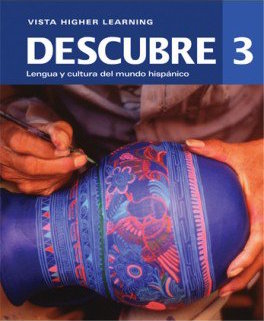
All Solutions
Page 56: Practica
* to Antoñito
to Antoñito and Maite
to Maite
to me
to us
to you
to you (plural)
The pronoun is a masculine singular third person, so it refers to Antoñito.
The pronoun is a singular second person, so it refers to you (**a ti**).
The pronoun is a singular first person, so it refers to me (**a mí**).
The pronoun is a feminine singular third person, so it refers to Maite.
The pronoun is a plural third person, so it refers to Antoñito and Maite.
The pronoun is a plural first person, so it refers to us (**a nosotras**).
The correct expression is **contigo**, with you.
The correct expression is **contigo**, with you.
The correct expression is **conmigo**, with me.
The correct expression is **contigo**, with you, for both blanks.
The correct expression is **consigo**, with herself.
The IO is a singular, feminine third person, so you could write:
*Trátenla amablemente.*
Treat it kindly.
The DO is a singular, masculine third person, so you could write:
*Tienen que pedírselo.*
You have to say it.
The DO is a singular, masculine third person, so you could write:
*No pueden contratarlo sin permiso.*
You can’t hire it without permission.
The DO is a singular, feminine third person, so you could write:
*Tienen que ponerla muy baja.*
You have to play it really low.
The DO is a plural, feminine third person, and the IO is a plural, masculine third person, so you could write:
*No deben servírselas.*
You mustn’t serve them to them.
The DO is a plural, feminine third person, so you could write:
*No pueden organizarlas nunca más.*
You can’t throw them every again.

